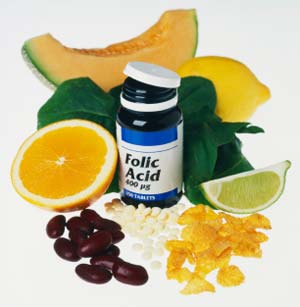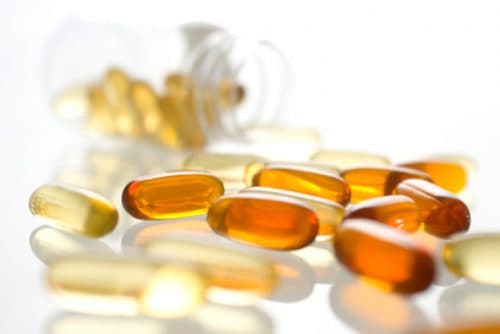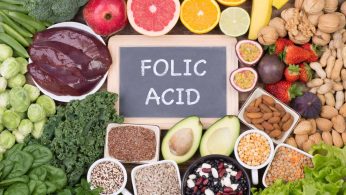The Most Important Supplements to Take When Pregnant
Disclosure: We use affiliate links and may receive a small commission on purchases.
 The Most Important Supplements to Take When Pregnant
thefitbay.com
The Most Important Supplements to Take When Pregnant
thefitbay.com
Pregnancy can be a rather confusing time especially when it comes to what nutrients your baby needs to be healthy as he or she develops and with so many websites recommending that you take a whole range of vitamins or prenatal multivitamins with next to no information as to why, it can be pretty difficult to know what’s best for your precious unborn. Here, we have collected together the information for you so that you know what the best supplements to take are, why you should take them when pregnant and how they can help with your babies development.
Folic Acid/Folate

Some women have an increased risk of having a pregnancy affected by a defect of the neural tube and it’s difficult to know who is at risk and who isn’t which is why it’s advised that all women take folic acid supplement tablets. It helps support the placenta and can avoid the development of neural tube defects.
The neural tube is the part of the embryo where your baby’s spine and brain develops and so it’s best to start taking folic acid supplements as soon as you find out you’re pregnant.
It’s recommended to take folic acid three months before conception and up to at least 12 weeks of pregnancy but if you were unable to take folic acid before you conceived, it’s recommended to start taking it as soon as you find out. Research has found that those that do take a good amount of folic acid starting 30 days before conception and throughout the first 3 months of pregnancy reduces the risk of the baby having a neural tube defect by up to 70%.
Vitamin D

The human body makes vitamin D naturally when we go out in the sun but it’s also found in some foods including oily fish, eggs, some breakfast cereals and dairy free alternatives. But it’s only in a small number of foods and it’s recommended that all adults consume 10mcg of vitamin D a day. It’s needed to regulate phosphate and calcium in order to keep muscles, teeth and bones healthy.
Low levels of vitamin D during pregnancy have been associated with an increased risk of complications including type 2 diabetes, pre-eclampsia and low birth weight of new-borns. So, it’s definitely recommended that you take vitamin D supplements to help with your own health in pregnancy and the development of your unborn.
Vitamin D deficiency can be subtle in its symptoms and may include achy muscles or softened bones which can lead to fractures but sometimes, there will be no symptoms and if you have a deficiency in vitamin D, so does your baby. Insufficiency of vitamin Dc an affect the bone growth, fcause rickets or fractures in babies so it’s definitely worth taking supplements throughout your pregnancy.
Vitamin C
An antioxidant that protects cells from damage and helps to keep them healthy and comes with an added bonus of helping prevent wrinkles according to recent research which has found that skin exposed to vitamin C for long periods of time can produce up to eight times more collagen. Not only that but it helps build a healthy immune system which during pregnancy your immune system is supressed and needs that added boost.
Calcium

As we all know, calcium is vital towards the growth of healthy bones and it’s no different for your unborn. Calcium helps both mother and baby during pregnancy as it allows for him or her to develop healthy, strong bones and teeth but it also helps towards keeping your bones healthy as well. It can also help towards preventing blood clots and the function of muscles and nerves in your unborn child.
Vitamin B1 (thiamin), B2 (riboflavin), and B3 (niacin)

Vitamin B1 can help during pregnancy but it also has a few warnings that need to be attached. There isn’t enough evidence to suggest what could happen if you take too much B1 but taking 100mg or less a day is unlikely to cause any harm. Thiamin can help raise energy levels and assists your nervous system, muscles and heart function normally. It enabled your body and your baby to convert carbohydrates into energy so it is needed.
Riboflavin (B2) helps keep the skin and nervous system healthy and helps towards maintaining good eyesight. It’s recommended to take 40mg or less to help the body release energy from the food we eat.
Just like vitamin B1 and B2, niacin (B3) helps to keep the nervous system and skin healthy. It also helps towards digestion and releasing the energy from the foods we eat. It’s recommended to take 17mg or less of nicotinic acid supplements a day.
These vitamins are generally available in prenatal supplements.
Fish Oil

Omega 3 from oily fish are helpful for the baby’s development, it helps towards the balanced production of substances such as prostaglandins important to regulate functions such as blood clotting, blood pressure, nerve transmission, the allergic and inflammatory reactions and so much more. It also helps to optimise the brain growth of your unborn little one and fend off depression in you which is definitely a plus.
Not only this but omega 3 are of essence when it comes to the development of the baby both neurologically and visually. It’s also advised to take omega 3 supplements after birth as well because it helps towards the production of breast milk.
However, though it’s safe to take omega 3 supplements, it isn’t safe to take cod liver oil during pregnancy.
Just as there are important supplements to take during pregnancy, there are also some supplements that you should avoid and this is something important to mention.
Vitamin A
It is advised not to take vitamin A (retinol) tablets during pregnancy because high levels of vitamin A has been linked to birth defects. High levels could cause even further harm to your unborn child.










